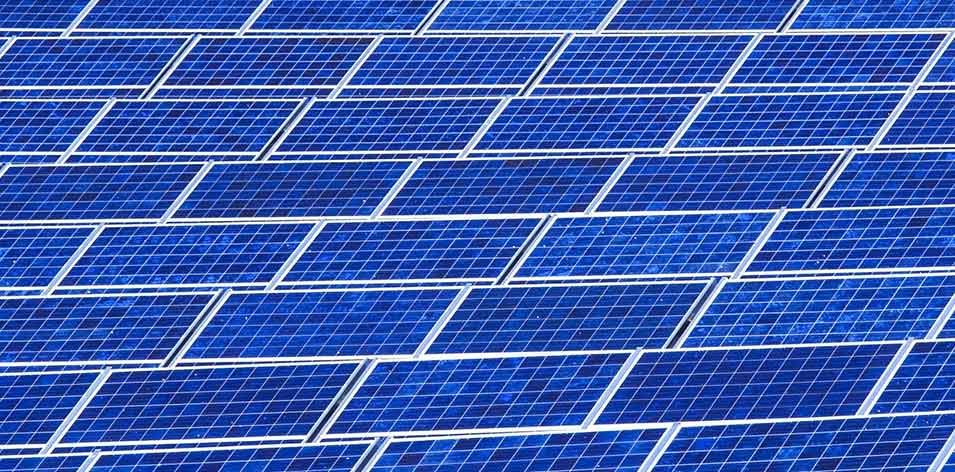Legislative Update

SB 242 (Skinner) – Property Assessed Clean Energy program: program administrator
Status: Passed
This bill establishes requirements specifically for Property Assessed Clean Energy (PACE) programs that are administered by a third-party program administrator for residential real properties with four or fewer units and requires a program administrator to submit a biannual report.
This bill also states that it is unlawful for work to commence under a home improvement contract and that a home improvement contract is unenforceable if a property owner entered into the home improvement contract based on the reasonable belief that the work would be covered by the PACE program and that the property owner cancels PACE financing within the three day right to cancel period established under existing law. Program administrators will be prohibited from permitting contractors to advertise PACE assessments or solicit property owners, unless specified requirements are met; providing direct or indirect cash payment or other things of value to a contractor or property owner; making representation as to the tax deductibility of an assessment contract; and, providing information to a contractor that discloses the amount of funds for which a property owner is eligible or the amount of equity in a property.
Status: Passed
This bill prohibit a program administrator from approving an assessment contract for funding and recordation by a public agency, unless the program administrator makes a reasonable good faith determination that the property owner has a reasonable ability to pay the annual payment obligations for the PACE assessment.
This bill also requires a program administrator to determine, prior to funding and recordation by a public agency of the assessment contract that the property owner has a reasonable ability to pay the annual payment obligations for the PACE assessment based on the property owner’s income, assets, and current debt obligations.
SB 100 (De León) – California Renewables Portfolio Standard Program
Status: Did not pass
This bill requires retail sellers of electricity to procure 60% of their retail electricity sales from eligible renewable energy resources by 2030 and thereafter, including new interim targets of existing law 44% by 2024, and 52% by 2027.
This bill also establishes state policy that renewable energy resources and zero-carbon resources supply all electricity procured to serve California end-use customers and the State Water Project no later than December 31, 2045.
AB 726 (Holden) – Energy and AB 813 (Holden) Renewable Energy Resources
Status: Did not pass
As amended, these bills would repeal the existing law governing the transformation of the ISO into a regional organization adopted as part of the Clean Energy and Pollution Reduction Act of 2015 and replace it with provisions authorizing the transformation of the ISO into a regional organization if the ISO governing board undertakes certain steps and the Commission on Regional Grid Transformation, which the bill would create, makes specified findings by December 31, 2018.
These bills would also require the CPUC, by March 31, 2018, to require electrical corporations with more than 100,000 service connections in California to procure renewable resources above the renewable portfolio standard minimum requirements as determined by the CPUC. An electrical corporation would be authorized to recover expenses for the procurement of the renewable resources.
AB 726 would also require an electrical corporation or gas corporation to provide a residential customer with a smart meter with energy usage or energy billing notifications at appropriate times, based on the customer’s usage of electricity or gas.
Status: Passed
This bill directs a publicly-owned utility that provides electric service to over 250,000 customers in the Los Angeles Department of Water and Power (LADWP) service territory, by March 1, 2018, to make electrical grid data available through the public records act, that is necessary or useful to enable distributed energy resource providers to target solutions to support reliability in the LA Basin. This bill also requires LADWP to maximize the use of demand response, renewable energy resources, and energy efficiency to reduce demand in the area where electricity reliability has been impacted by the Aliso Canyon natural gas storage facility and by June 1, 2018, to determine the cost-effectiveness and feasibility of deploying a minimum of aggregate total of 100 megawatts of cost-effective storage.
This bill also requires Southern California Edison, by June 1, 2018, to deploy a
minimum aggregate total of 20 megawatts of cost-effective energy storage solutions in the LA Basin.
AB 546 (Chiu) – Land use: local ordinances: energy systems
Status: Passed
This bill requires cities, including charter cities, and counties to make all documentation and forms associated with permitting of advanced energy storage available on the city or county website, if it has one. This bill also allows the Governor’s Office of Planning and Research to provide guidance on energy storage permitting, including streamlining, best practices, and potential factors for consideration by local government in establishing fees for permitting and inspection.
Local Government Commission Newsletters
Livable Places Update
CURRENTS Newsletter
CivicSpark™ Newsletter
LGC Newsletters
Keep up to date with LGC’s newsletters!
Livable Places Update – April
April’s article: Microtransit: Right-Sizing Transportation to Improve Community Mobility
Currents: Spring 2019
Currents provides readers with current information on energy issues affecting local governments in California.
CivicSpark Newsletter – March
This monthly CivicSpark newsletter features updates on CivicSpark projects and highlights.



